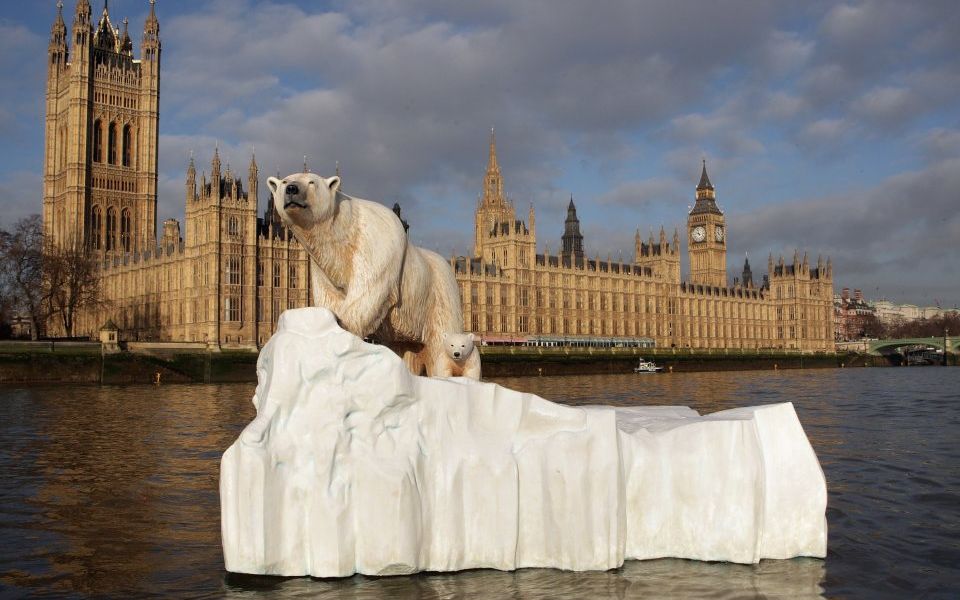Accountants can save the world (really)

Last week, the UN Intergovernmental Panel on Climate Change (IPCC) released a landmark report due to be presented to governments at the Conference of the Parties in December this year.
Its conclusions are stark – global carbon emissions must start to reduce well within 12 years if we are to prevent potentially catastrophic climate change from becoming irreversible reality.
While clearly not moving quickly enough in the right direction, business is increasingly thinking more widely and comprehensively about its purpose and impact in this area – driven not least by growing corporate reporting against the United Nations Sustainable Development Goals (UN SDGs).
First introduced in 2015, the UN SDGs provide a framework for understanding the complex, interconnected challenges that governments face in delivering stability and prosperity to their citizens.
They also clearly acknowledge that not safeguarding the planet and its resources will have dire economic and human consequences.
The enlightened private sector has recognised that it can be the engine of change to deliver these goals – and that the accountancy profession will have a leading role to play in driving the evolution.
The defining challenge
The 17 SDGs tackle the most complex and pressing issues we face as a global civilisation – including climate action, responsible consumption and production, and affordable and clean energy, all of which are deeply relevant to the IPCC’s latest warnings.
And they are not nebulous and open-ended concepts, but concrete plans that encompass 169 targets and 230-plus indicators to be met by 2030.
As the profession most responsible for management through measurement, the task of ensuring widespread understanding, take-up, monitoring and reporting of progress on the SDGs will be a defining challenge for professional accountants.
The core areas where professional accountants can, and should, play a role in delivering the 2030 agenda encompass five main challenges and opportunities.
Banking on change
First, future business growth opportunities that are more socially and environmentally aware are strongly aligned to the SDGs.
Increasingly, professional accountants will be involved in assessment and pursuit of SDG-related opportunities, understanding the wider context of operating in more complex markets, where sustainable development issues lie at the heart of value creation.
Risky business
Second, environmental and social risks linked to many of the SDGs are growing for business at an exponential rate.
They are also becoming more interconnected. Environmental risks, particularly climate change, are already demanding a new level of precision when it comes to analysis, monitoring and reporting. Social risks are also rising up boardroom agendas.
Tech toolkit
Third, we know that digital technology and the rise of data analytics and artificial intelligence are growing in application for the profession. This is no less so the case for engaging with SDG issues.
Familiarity with a growing set of digital tools that support environmental and social data collection and analytics are growth areas for the professional accountants of the future.
Invest for the best
Fourth, new investor preferences aligned to the SDGs will spur an increasing demand for better disclosures from companies.
From mainstream investing where environmental, social and governence criteria is growing in prevalence, to the continued expansion of impact investing, the SDGs have the potential to provide an easy-to-understand framework for a range of investors.
Reliability of quality information will be critical for investors. It presents an emerging space where professional accounts can use their skills.
Taxing affairs
Finally, governments are reporting on their progress on the SDGs to the UN. This will involve coordinated approaches across government, improved data collection, and an increasing role for co-delivery with the private sector.
Not only will the SDGs be incorporated into frameworks for government action at many tiers, they will increasingly emerge in regulatory discussions.
Outside of direct regulation, taxation can and should be part of the solution. But we need to look at how we incentivise business entities to best meet contemporary challenges and opportunities.
In terms of climate protection, targeted tax measures, such as introducing landfill levies or taxes on single-use plastic, may help – but they are no longer enough.
For example, modelling results from the EU member states have shown that tax reforms to reduce labour taxes in return for an increase in green taxes can increase GDP and employment, while cutting carbon emissions and also reducing energy import costs over a five year period.
Trust issues
Today’s global economy is a feat of interconnectedness that, when successful in its implementation, has given rise to structural transformations that have radically altered the way people live and work for the better.
But, with rising distrust in institutions, increased economic inequality, and the existential threats posed by climate change, we need to look again at how the business community can best serve its stakeholders.
We can’t rely on just of some in the corporate fold rising to the challenge laid down by the UN, whether from the IPCC or in the form of its SDGs. All companies – here in the UK and elsewhere – need to mean business.
